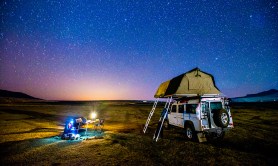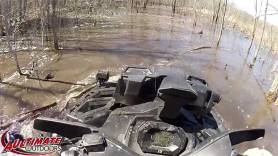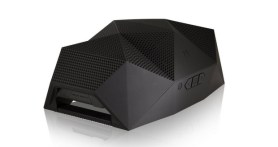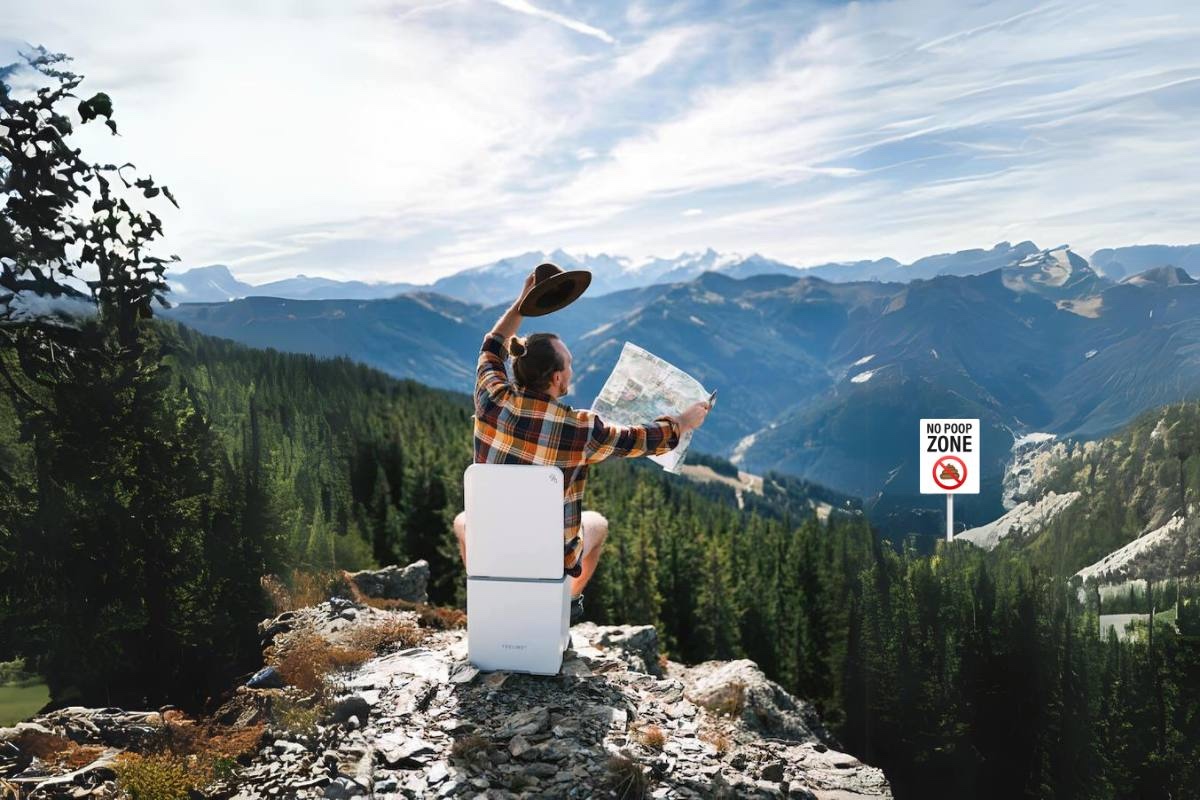

Peeing and pooping in the wilderness may feel like a rite of passage for the die-hard campers of the world, but it doesn’t always align with the Leave No Trace ethos popular among outdoor lovers. Solid human waste can take a year or longer to biodegrade on its own, depending on the soil type. Plus, human feces can carry diseases that can make wild animals and other humans sick, especially if the waste is too close to a water source.
Videos by Outdoors with Bear Grylls
One solution is to always camp near facilities. Another is to collect your waste and pack it out using a wag bag. Or, you can always BYOT—bring your own toilet. Camping toilets can be as simple as a bucket with a liner and a seat/lid attachment, or you can invest in a composting toilet that’s eco-friendly, convenient to use, and easy to clean.
My family of four typically camps in a pop-up camper trailer with a built-in cassette toilet that is, frankly, really gross to clean. But my kids think tent camping is the best thing ever, so we do that, too. Having a composting toilet as part of our camping gear makes it easy for kids and adults alike to answer when nature calls.
This post contains affiliate links. Outdoors.com may earn a commission when you make a purchase through these links. Thank you for your support.
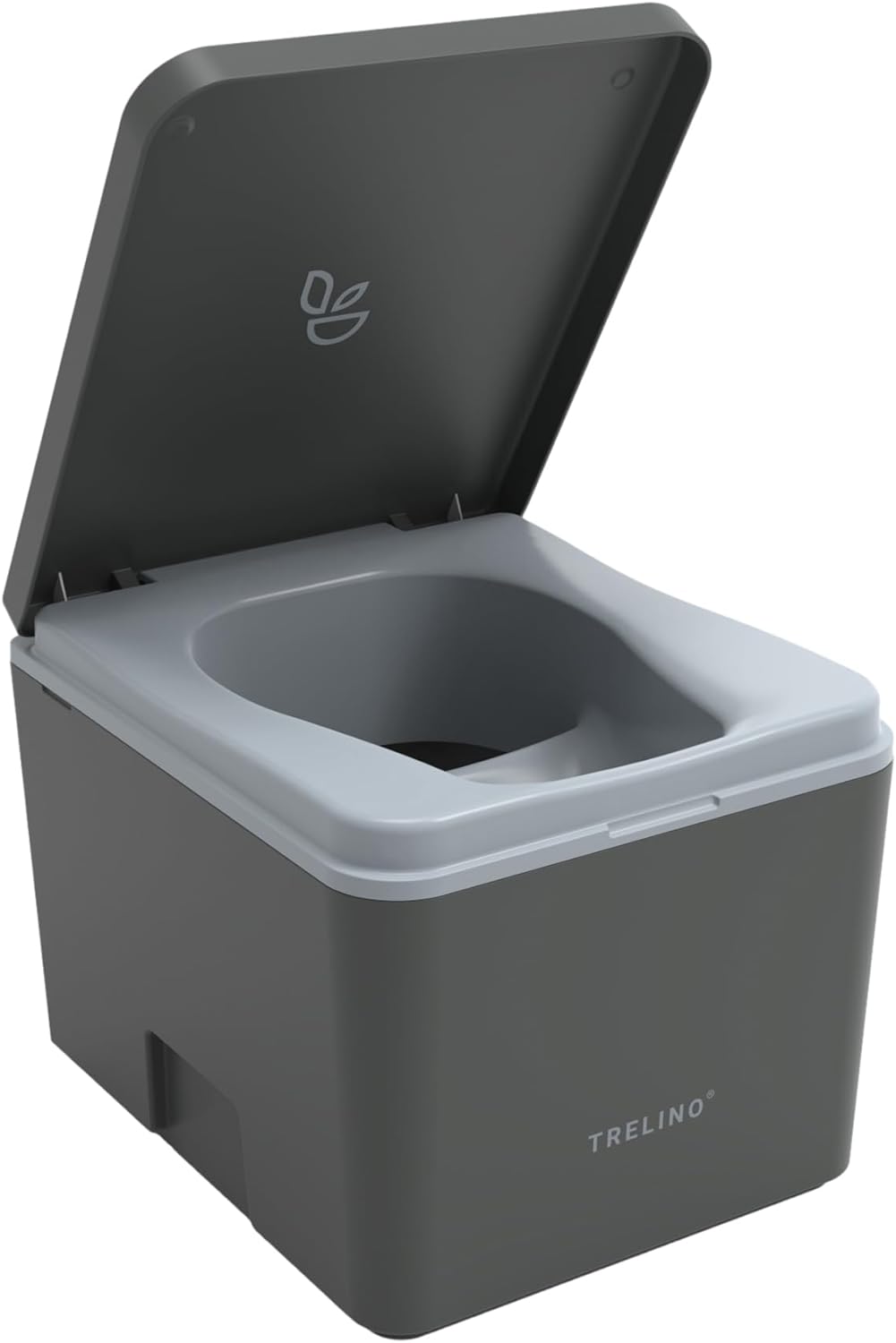
Dry Composting Toilets
Dry composting toilets are a sustainable alternative to pooping and peeing in the wilderness because they keep solid waste out of the ground and they don’t require water. We use the Trelino Evo, which has two compartments—one for urine and one for solid waste. Thanks to the separator, urine flows into a designated container in the front, while solids fall into the back container that you must line with a bag.
Instead of using chemicals to cover up the smell, a dry composting toilet like the Trelino Evo uses organic litter to absorb moisture and snuff out the smell.
So, inside the Trelino Evo dry composting toilet, there’s:
- A plastic separator to keep #1 and #2 separate.
- A plastic urine canister that you lift out of the toilet to empty.
- A solids container that you line with a bag.
Before you use a dry composting toilet for solids, you scoop some “litter” (explanation below) into the solids container to form a bottom layer. Then, after you use it, you scoop more litter on top of solids. The litter dries out the solid waste and helps eliminate smells.
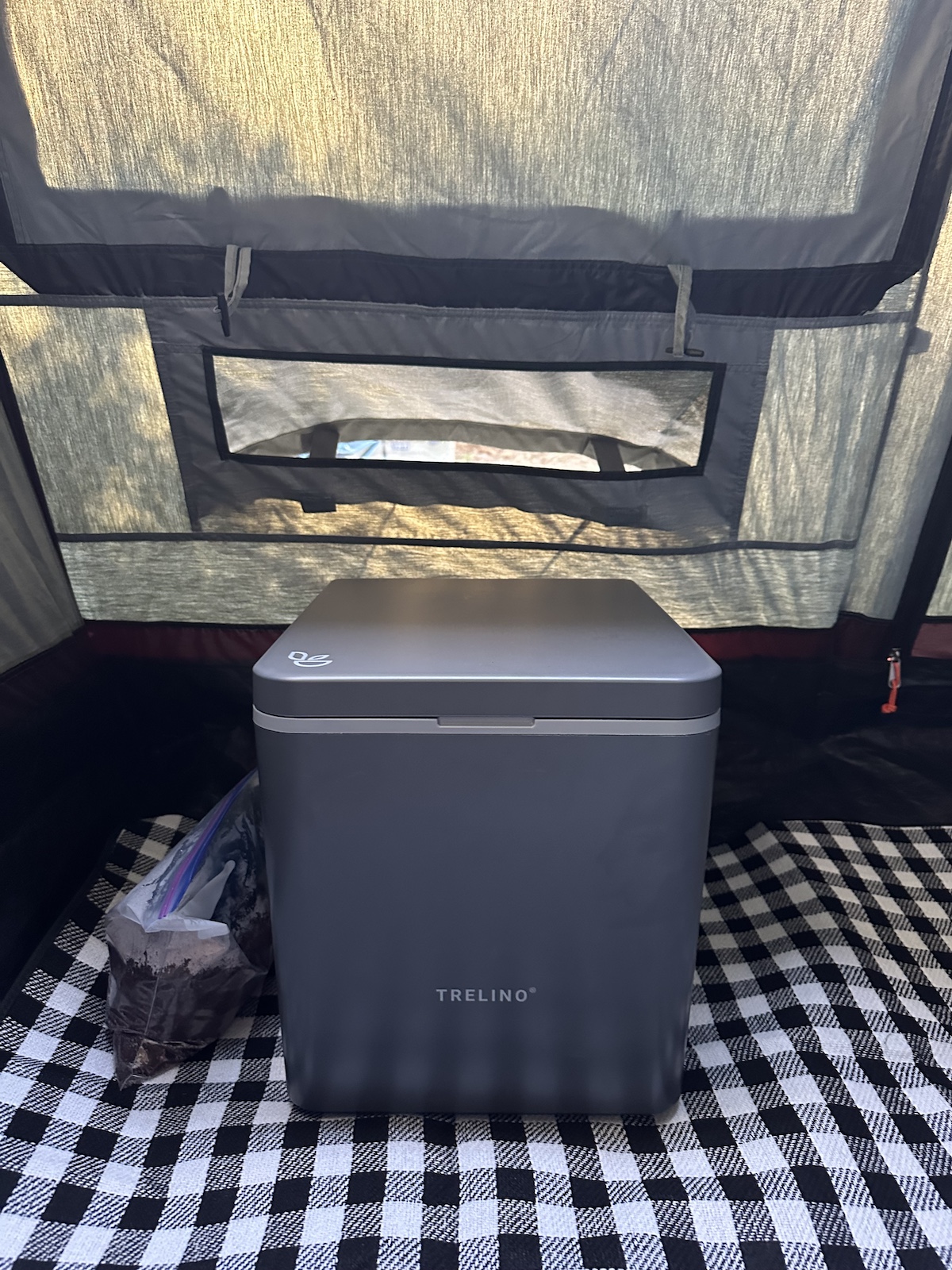
My Experience With the Trelino Evo
Getting started with the Trelino Evo was pretty straightforward. We followed the included instructions, buying a coco-coir brick and preparing some litter before we left for our camping trip. The litter went in gallon Ziploc bags for transport and storage, and we brought along a dedicated cup to use as a litter scoop. (We also brought biodegradable toilet paper.)
As my husband and I were setting up camp, both kids announced they had to poop, so we used the thing immediately. I was impressed that our composting toilet really did manage smells. Overnight, we even kept the toilet in the vestibule area of our tent, in case one of the kids had to pee before the sun came up.
Clean up was a dream with the Trelino Evo compared to our RV’s cassette toilet, which is gag-worthy every single time. For a quick clean, simply remove the solids bag and dispose, empty and rinse the urine canister, and wipe down the plastic separator and exterior with a cleaning spray. For a deeper clean, follow Trelino’s suggestions.
Bottomline: The Trelino Evo composting toilet has been a fantastic upgrade to my family’s tent-camping setup. It’s a convenient and eco-friendly alternative to squatting behind a tree. And unlike other types of camping toilets, it’s not disgusting to clean.





